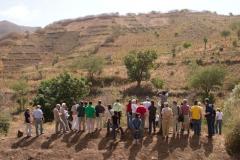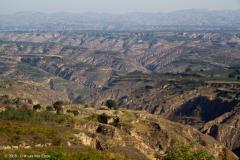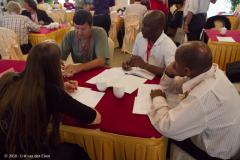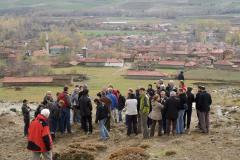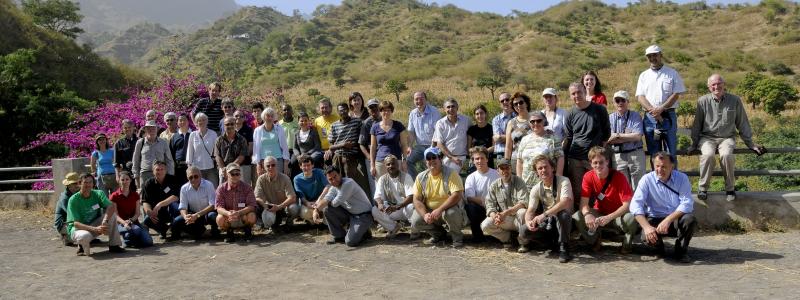
The DESIRE project aims to establish promising alternative land use and management conservation strategies in eightteen degradation and desertification hotspots around the world, based on a close participation of scientists with local stakeholder groups.
 This integrative participatory approach ensures the acceptability and feasibility of conservation techniques, as well as a sound scientific basis for the effectiveness at various scales. DESIRE employs a bottom up approach, as favoured by the UNCCD:
This integrative participatory approach ensures the acceptability and feasibility of conservation techniques, as well as a sound scientific basis for the effectiveness at various scales. DESIRE employs a bottom up approach, as favoured by the UNCCD:
- degradation and desertification hotspots and stakeholder groups have been identified in all countries surrounding the Mediterranean, and in 6 external nations facing similar environmental problems,
- desertification indicator sets will be defined in a participatory approach and a harmonized information system will be constructed to organize socio-economic and geo-information data,
- new and existing conservation strategies will be defined with the stakeholder communities;
- these strategies will be implemented in the field, and monitored and modeled to quantify their effectiveness at various scales,
- the results will be extrapolated using indicator sets, geo-information data, and integrated modeling systems combining socio-economic and environmental aspects, and
- finally the results will be translated to a series of practical guidelines for good agricultural practices and environmental management, which will be disseminated to practitioners, agricultural extensionists, governmental authorities, policy makers, NGOs, land users, land owners, and local communities.
The project is coordinated by Alterra in Wageningen. ISRIC is responsible for Work Block 1 (WB1): Environmental and socio-economical context, which consists of:
- a review of existing information sources with relevance to the land degradation problems and their solutions in the study areas - an overview of desertification problems in the study countries (map & report)
- identified drivers of land degradation with specific reference to the study areas at field, local and policy level - an inventory of relevant stakeholders and
- development of a set of sustainability goals ISRIC is also a major contributor to WB3: Defining potential prevention and mitigation strategies, where WOCAT plays an important role as well.
ISRIC is also a major contributor to WB3: Defining potential prevention and mitigation strategies, where WOCAT plays an important role as well.
